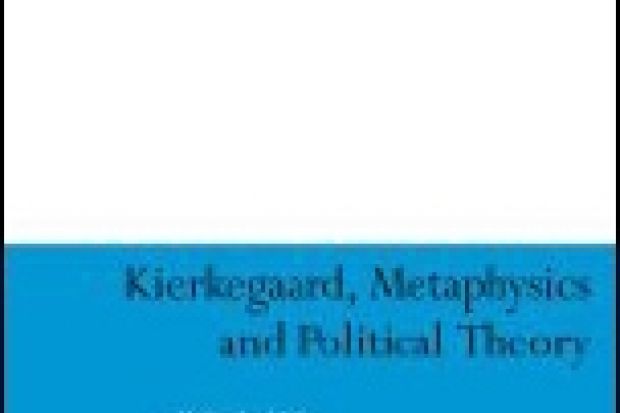Alison Assiter's new work on Soren Kierkegaard and moral theory is a fine attempt at providing a fresh way of thinking about ethics and human rights without completely abandoning the framework that we already possess. Analysing lines of argument derived from contemporary analytic philosophy and Kantian views of the past, Assiter argues that the standard metaphysical view of a person as a separate-entity-with-rights cannot do justice to our contemporary needs.
Specifically, Assiter attempts to merge Kierkegaard's own views on specificity and the need to establish a relationship with the other as a basis for our moral thinking. One of her strengths is that she goes to great lengths to set out the views that she attacks - early chapters are devoted, for example, to the difficulties that we have in addressing the discourse of human rights currently, given a limited view of rights and the reality of multicultural societies. An entire chapter is devoted to the challenges presented by fundamentalist views in Western societies, and another chapter is devoted to an analysis of the 20th-century concept of evil, derived in part from the specific horrors and atrocities of the past few decades. As Assiter notes, the opposition of classical "liberalism" and many religious views often leaves us, seemingly, with nowhere to turn.
Many who have read Kierkegaard carefully have noted that the fact that he eschewed, for the most part, the work of the systematisers of his own time, provides us with a new way of seeing not only our relationship with the divine but with other people. Assiter's argument is that taking Kierkegaard seriously does much to undermine the classical liberal position. She argues that Kierkegaard provides us with a framework in which we can use the concept of "love" to pursue a healthy love and respect for ourselves, and then for others.
Indeed, as she claims in the chapter "Metaphysics and Morality", Kierkegaard's notions are not so unfamiliar to us, even on a daily and colloquial level. She notes that he suggests that "there is a way around the impracticality of taking the needs of every other into consideration ... (it involves) a principle of 'providential proximity'". In other words, we can use our natural attachments to those who seem in some way tied to us to motivate ourselves to assist others, without having to address the network of deontological arguments that seem to bedevil contemporary attempts to argue, for example, that we ought to give to Oxfam.
A small difficulty with Assiter's thought-provoking book is that many of the arguments, particularly those that reflect the long-established lines of thought in ethics that are deemed to buttress a "rights" view, are dealt with quickly, and the reader may want a more developed overview. But this feature of the work is directly tied to one of its main strengths: many lines of argument are examined, and those who would try to ask us to think of others, our planet and our futures on the basis of any well-known set of arguments, from Locke to Kant to contemporary ethics, will find at least some advertence to the argument in question in the first two or three chapters.
Assiter has written a thoughtful and original work that asks us to think of others in terms developed by Kierkegaard in many of his major works, from Stages on Life's Way to Philosophical Fragments. As she notes in closing: "Rethinking the starting point of the personal and the political, in the kind of way I have outlined, seems to me to be necessary in our contemporary, conflict-ridden world."
Kierkegaard, Metaphysics and Political Theory: Unfinished Selves
By Alison Assiter. Continuum, 176pp, £65.00. ISBN 9780826498311. Published 24 May 2009
Register to continue
Why register?
- Registration is free and only takes a moment
- Once registered, you can read 3 articles a month
- Sign up for our newsletter
Subscribe
Or subscribe for unlimited access to:
- Unlimited access to news, views, insights & reviews
- Digital editions
- Digital access to THE’s university and college rankings analysis
Already registered or a current subscriber? Login
